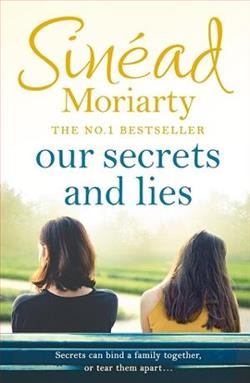Sinéad Moriarty's Our Secrets and Lies is a poignant exploration of the complex dynamics between a mother and her children, set against the backdrop of societal expectations and personal sacrifices. The novel delves deep into the intricacies of familial relationships, particularly focusing on the often-unseen emotional toll that parental ambitions can have on children. Through the lens of Lucy Murphy's life, Moriarty crafts a narrative that is both relatable and thought-provoking, inviting readers to reflect on their own familial bonds and the unspoken pressures that accompany them.
At the heart of the story is Lucy Murphy, a character whose life took an unexpected turn when she became a mother at the tender age of 21. Forced to abandon her own dreams, Lucy channels her aspirations into her twins, hoping to provide them with the opportunities she missed. This is a common theme in literature, where parents project their unfulfilled desires onto their children, but Moriarty adds depth by exploring the emotional consequences of such actions. Lucy's journey is a testament to the sacrifices parents make, but it also serves as a cautionary tale about the dangers of living vicariously through one's offspring.
The twins, each with their own unique personalities and dreams, are central to the unfolding drama. Moriarty skillfully portrays the tension between parental expectations and adolescent autonomy. The scholarship to a prestigious school, which Lucy views as a golden opportunity, becomes a symbol of the disconnect between her desires and her children's true aspirations. This narrative thread is particularly compelling, as it highlights the universal struggle of balancing parental guidance with the need for children to forge their own paths.
One of the novel's strengths lies in its character development. Lucy is a well-rounded character, portrayed with both strengths and flaws. Her determination and love for her children are palpable, yet her inability to see beyond her own ambitions blinds her to the emotional needs of her twins. This complexity makes her a relatable and sympathetic character, even as readers may find themselves frustrated by her actions. Moriarty's portrayal of Lucy's internal conflict is nuanced, capturing the essence of a mother torn between her desires and the well-being of her children.
The twins, particularly Lucy's sensitive daughter, are equally well-developed. Moriarty captures the essence of adolescence with authenticity, portraying the struggles of young adults trying to assert their independence while navigating the expectations placed upon them. The daughter's journey is particularly moving, as she grapples with the pressure to meet her mother's expectations while yearning to pursue her own dreams. This internal struggle is a powerful reminder of the importance of listening to and understanding the desires of young people.
As the narrative unfolds, a catastrophic event serves as a catalyst for change, forcing Lucy and her children to confront the truths they have been avoiding. This turning point is handled with sensitivity and realism, as Moriarty delves into the emotional fallout and the subsequent journey towards healing and understanding. The resolution is both satisfying and thought-provoking, leaving readers with much to ponder about the nature of love, sacrifice, and the importance of letting go.
In terms of themes, Our Secrets and Lies tackles several important issues. The novel explores the concept of identity and the impact of societal expectations on personal choices. It raises questions about the nature of success and the true meaning of happiness, challenging readers to consider whether fulfilling societal norms is worth sacrificing personal dreams. Additionally, the book delves into the complexities of communication within families, highlighting the importance of open dialogue and understanding.
Comparatively, Moriarty's work can be likened to novels such as Jodi Picoult's My Sister's Keeper or Celeste Ng's Little Fires Everywhere, both of which explore familial relationships and the impact of parental decisions on children. Like Picoult and Ng, Moriarty has a keen eye for detail and a deep understanding of human emotions, which she uses to craft a narrative that is both engaging and emotionally resonant.
Overall, Our Secrets and Lies is a compelling read that offers a fresh perspective on the age-old theme of parental ambition versus children's autonomy. Moriarty's ability to weave a narrative that is both entertaining and thought-provoking is commendable, making this novel a must-read for anyone interested in the complexities of family dynamics. The book's impact lies in its ability to resonate with readers on a personal level, encouraging introspection and dialogue about the nature of love, sacrifice, and the importance of understanding and accepting the dreams of others.
In conclusion, Sinéad Moriarty has crafted a novel that is both moving and insightful, offering readers a glimpse into the often-unseen emotional struggles within families. Our Secrets and Lies is a testament to the power of storytelling, reminding us of the importance of empathy, understanding, and the courage to let go. Whether you are a parent, a child, or simply someone interested in the intricacies of human relationships, this book is sure to leave a lasting impression.







![The World of Dating [Official]](/upload/pic/manga/the-world-of-dating--official-.webp)















Reviews 0
Post a Reviews: